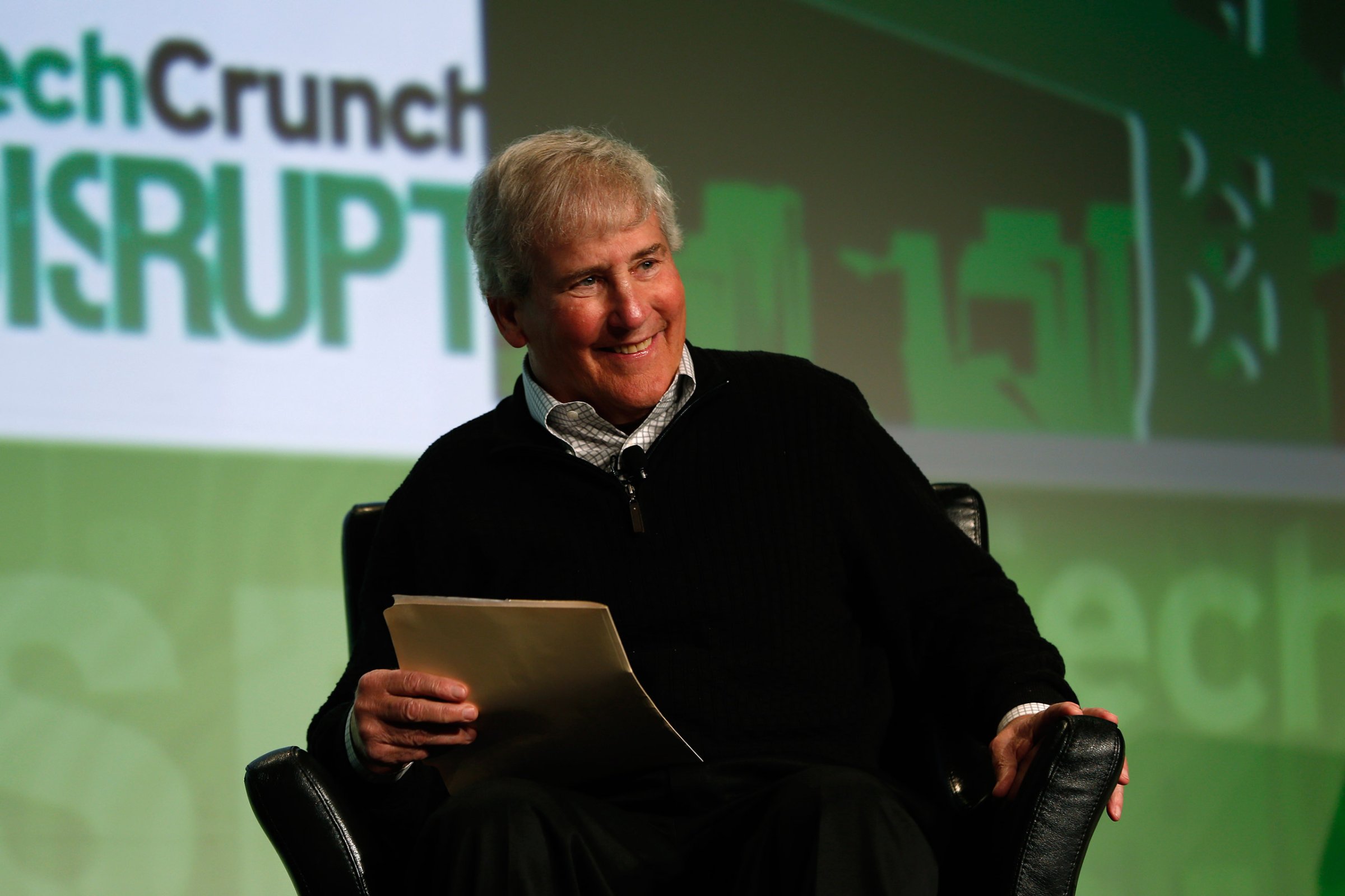
Silicon Valley and “E.Q.” don’t often appear in the same sentence. That’s why Bill Campbell, the “Secret Coach” to countless Valley entrepreneurs including Steve Jobs, the Google Guys and others, was so special. A former football coach turned, as I termed it in a 2008 profile, “nerd whisperer,” he could speak the language of techies but also help them understand that companies are as much about management as they are about the product. He worked at Apple in the early days, then the ill-fated Go, then became CEO of Intuit. He was proudly old in a sea of youth, a Midwesterner among the coastal elite, a foulmouthed beer drinker who would have barfed at the notion of Soylent. Which is why the Valley needed him so much. He was simply awesome.
When I heard that he’d passed away, I felt like crying—hardly the typical reaction to hearing that someone I wrote about once had died. It’s even more telling considering that my article discussed at length how desperately he wanted not to appear in print; tried his best to keep me from writing it. He even enlisted Steve Jobs to call me directly one afternoon to explain that he would not be participating in the story. “Bad things happen when people write stories that shouldn’t be written,” Jobs said, ominously. (I was so convinced that this was a friend pranking me that I didn’t even freak out until later). But after I called about 50 of Campbell’s friends and colleagues—all of whom were thrilled to talk to me about their experiences working with him—Coach admitted he wouldn’t be able to stop the story after all. “You scored a touchdown while I was still on the 20-yard line,” he grumbled in his gravely voice. And although he wouldn’t speak to me on the record (but did invite me to share a Bud Light with him at The Old Pro, a sports bar in Palo Alto), others did—including Jobs, who called me back a few weeks later, eager to tout the talents of Coach, as if that other call had never happened.
Although Campbell never wanted any public attention for all the good he did, I’m really glad that story came out. It helped reveal what an incredible mensch the guy was—and how he was around at some of the most epic moments in modern tech history. Here’s just one anecdote from the 2008 story:
A classic Campbell moment from those Apple days was his role in getting the company’s famous “1984” ad on the air to introduce the Mac during Super Bowl XVIII. It was a lavish production directed by Ridley Scott, and there was concern within the company that it was too costly and too controversial, and that Apple should try to resell the expensive broadcast slot it had bought. E. Floyd Kvamme, then Apple’s EVP of sales and marketing, laughs as he recalls what happened when a sales executive told Campbell and Kvamme that she had found someone willing to buy the 60-second spot Apple wanted to unload. “We looked at each other,” says Kvamme, “and Bill says ‘Did she say anything?’” The two never told the board or other top executives that they had a potential buyer for the time slot, and the ad aired. It helped Apple establish its iconoclastic brand; Advertising Age later named it the greatest commercial ever made.
Following the publication of Fortune’s article, Campbell and I would talk every so often, and had a few epic nights at his favorite NYC watering hole, the Old Town Bar. (He knew the name of every single barkeep and waitress.) Campbell was always full of unadulterated truths about his world, no-bullshit pronouncements that made it clear that he knew the world he lived in was a little bit absurd. He was devoted to his kids and loved to share their latest accomplishments. When Jobs was dying, Campbell was by his side almost constantly. Campbell also served as a surrogate dad for Mike Homer, another tech luminary cut down too quick by illness.
Coach really doesn’t need an epitaph, but I do think that Randy Komisar, a partner at Kleiner Perkins, said it best back in 2008. “How does someone create a rapport where that person comes away believing that Bill cares about him first and foremost?” he wondered. “Bill’s impact in the end will be very hard to measure, but it is really important. It won’t be in the legacy of a [any particular company]; it won’t be in the more classic sense of putting points on the board. It will be in seeing the people he’s touched go off to do great things.” Raising a frosty glass to you, Coach.
This article originally appeared on Fortune.com
More Must-Reads from TIME
- Why Trump’s Message Worked on Latino Men
- What Trump’s Win Could Mean for Housing
- The 100 Must-Read Books of 2024
- Sleep Doctors Share the 1 Tip That’s Changed Their Lives
- Column: Let’s Bring Back Romance
- What It’s Like to Have Long COVID As a Kid
- FX’s Say Nothing Is the Must-Watch Political Thriller of 2024
- Merle Bombardieri Is Helping People Make the Baby Decision
Contact us at letters@time.com